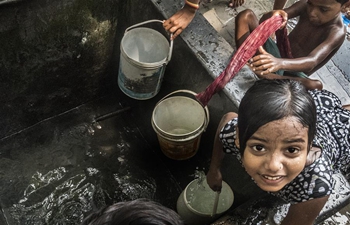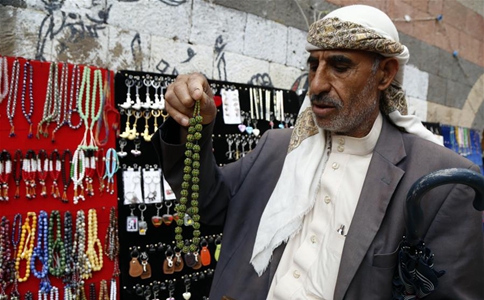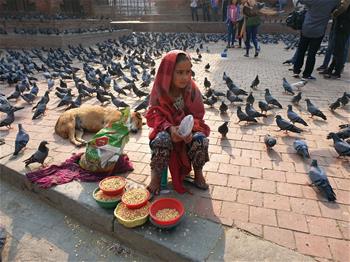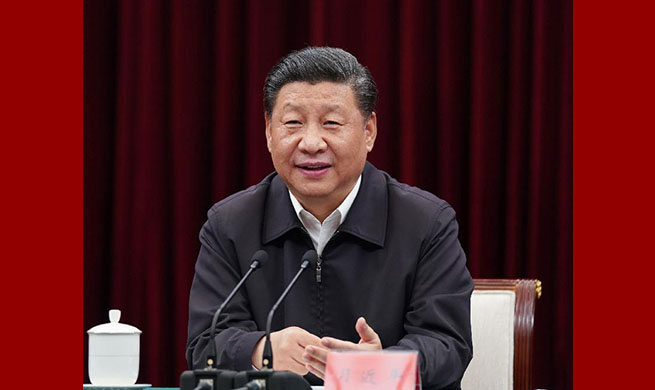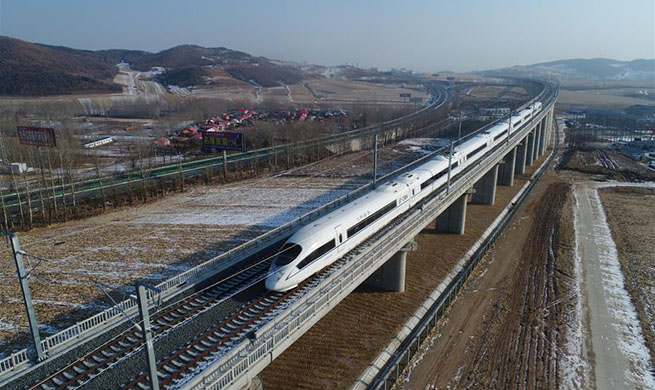by Olatunji Saliu
ABUJA, May 23 (Xinhua) -- The Nigerian government has confirmed it is set to give out indirect subsidy as incentives for disadvantaged individuals to build and use toilets to end open defecation in the country.
Such subsidies will be in areas of partnership with the private sector and local cement manufacturers to reduce the cost of constructing toilets and enable the poorest persons to build and use toilets, the federal ministry of water resources said.
Emmanuel Awe, the director of water quality control and sanitation at the ministry of water resources, told stakeholders at a meeting in Abuja that the possibility of building more toilets across the country would be backed with emphasis on behavioral change.
The official noted efforts of the Nigerian government to end open defecation practice include the inauguration of the "Open Defecation Free Roadmap" and the "Clean Nigeria, Use a Toilet campaign."
"We may not give subsidy per se to the poorest of the poor, but it may be in areas of institutional support just like building sanitation facilities in public places like schools, hospitals and giving them to the private sector to manage," Awe said.
"We are also looking at how to give incentives to the states to invest more in sanitation in their budgetary allocations, the toilets must be built before the incentives are given."
This insight of ending open defecation was taken from the efforts by the Indian government in halting open defecation among 450 million persons in three years, according to Awe.
About 47 million Nigerians still indulge in open defecation in the most populous African country, the United Nations Children's Fund (UNICEF) said on Wednesday.
Out of the 47 million people, the north-central region has 53.9 percent, making it the highest region practicing open defecation in the country, UNICEF said at the beginning of a two-day media dialogue in Kano State.
The southwest region has 28 percent, the northeast has 21.8 percent, northwest 10.3 percent, the Niger Delta region 17.9 percent, while the southeast has 22.4 percent, according to the UN agency's data.
Only 64 percent of Nigerians have access to basic drinking water services, 42 percent have access to basic sanitation services, while only 20 percent have fixed lace for hand washing with soap and water, the data showed.
On May 8, the Nigerian government approved the inauguration of a national campaign as part of efforts toward making the country free from open defecation by 2025.
Minister of Water Resources Suleiman Adamu earlier told reporters that the government has also approved funds which would be sourced from annual budgetary allocation and grants from development partners to promote the national campaign tagged "Clean Nigeria, Use The Toilet."
Only 10 out of a total of 774 local government areas in Nigeria do not practice open defecation. And that figure shows that only about 21,000 communities in the West African country are free from open defecation, Adamu said.
The national campaign had become very necessary as the situation of sanitation in Nigeria is alarming and worrisome, the official noted. Nigeria is next to India in the global ranking of countries where open defecation is practiced.
India, which has been working for the past four years to end open defecation, is set to declare itself free from it by October.
Bioye Ogunjobi, a Water Sanitation And Hygiene (WASH) specialist of UNICEF, told Xinhua that only six percent of Nigerian schools have basic gender sensitive WASH services, while five percent of Nigerian health facilities have basic sensitive WASH services. Also, only 12 percent of markets and motor parks have basic WASH services.
Nigerian President Muhammadu Buhari and his cabinet members have agreed to be named first level ambassadors for the national campaign to end the open defecation, by providing the needed leadership and commitment for the successful implementation of the campaign.
The campaign has become critical to reducing the high prevalence of water-borne diseases which have caused preventable deaths in all parts of Nigeria.
